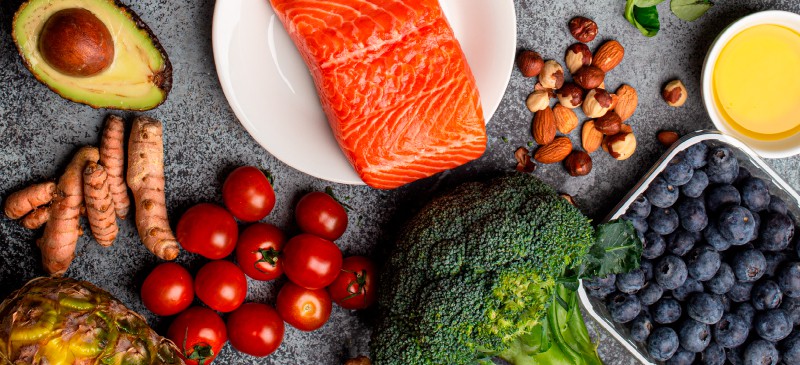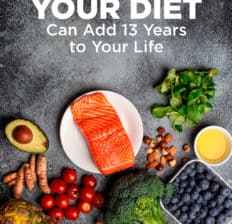This Dr. Axe content is medically reviewed or fact checked to ensure factually accurate information.
With strict editorial sourcing guidelines, we only link to academic research institutions, reputable media sites and, when research is available, medically peer-reviewed studies. Note that the numbers in parentheses (1, 2, etc.) are clickable links to these studies.
The information in our articles is NOT intended to replace a one-on-one relationship with a qualified health care professional and is not intended as medical advice.
This article is based on scientific evidence, written by experts and fact checked by our trained editorial staff. Note that the numbers in parentheses (1, 2, etc.) are clickable links to medically peer-reviewed studies.
Our team includes licensed nutritionists and dietitians, certified health education specialists, as well as certified strength and conditioning specialists, personal trainers and corrective exercise specialists. Our team aims to be not only thorough with its research, but also objective and unbiased.
The information in our articles is NOT intended to replace a one-on-one relationship with a qualified health care professional and is not intended as medical advice.
Changing Diet to Extend Life: Healthy Food Choices Can Add 8 to 13 Years
March 2, 2022

Dietary risk factors are estimated to cause 11 million deaths annually. Can a healthy diet extend your life span? According to recent research, it very likely can.
We’ve known for years that diets containing plenty of healthy fats (such as from olive oil and nuts), vitamins, minerals and antioxidants (from foods like veggies, fruits and herbs) are natural life extenders. This is the same type of diet that people living in the “Blue Zones” eat, and these are the populations most likely to live to 100+ years.
Study Findings: Changing Diet to Extend Life
How many years does eating healthy add to your life?
A study published in PLOS Medicine that was conduced by researchers in Norway focused on changing diets to extend life spans. The study found that eating a nutrient-dense diet, similar to a “Mediterranean diet” or those eaten in the Blue Zones, could extend your life by an estimated eight to 13 years, depending on your age.
Findings were based on a model that researchers created using data from the Global Burden of Disease Study, which included thousands of participants from 204 countries. The study’s model was used to estimate what would happen to someone’s body and life span if that person switched from a highly processed “standard Western diet” to a healthier diet that emphasized whole foods instead.
The types of dietary changes that were found to have the highest impact on longevity included decreasing red meat, ultra-processed food and sugary food consumption, and instead having more vegetables, fruits, legumes, whole grains, fish and nuts.
Here are some key findings regarding diets extending people’s life spans, according to the study results:
- The earlier that someone adopts a healthy diet, the better. For example, if a woman were to begin eating a nutrient-rich, “optimal” diet around the age of 20, she could potentially add about 10 years to her life.
- Men seemed to benefit even more from nixing junk foods and eating better. The study found that if a man started eating optimally when he was 20 years old he could add an estimated 13 years to his life span.
- If young adults ate better, but not the best they could, they could still live about six to seven years longer.
- Although it’s ideal to eat a balanced and unprocessed diet throughout your life, it’s never too late to start. The study findings suggest that even if older adults didn’t begin eating a Mediterranean diet until around the age of 60, they could still increase their life spans by eight to nine years.
- Even 80-year-olds who started eating less meat and more plant-proteins and other nutritious foods could benefit from an added three-plus years to their lives.
What It Means
Not only can a healthier diet promote longevity, but it can also improve the quality of your life by limiting the risk for chronic diseases, such as heart disease, obesity, cancer, diabetes and dementia.
If you currently eat a standard American (or Western) diet, chances are you’re not eating optimally and could afford to make some changes.
Case in point: The Centers for Disease Control and Prevention has reported that only about 10% of American adults consume the recommended daily amount of fresh fruits and vegetables each day (two to three servings of each).
Although beans/legumes are highly recommended due to their benefits for gut health, heart health and weight management, many people don’t eat any types of beans regularly. Another issue is that 95% of Americans fail to meet the goal of eating enough whole grains compared to refined grains. (It’s recommended that at least half of your grains are 100% whole grains, which are higher in fiber and other essential nutrients.)
Meat consumption in Western nations is another problem. Countries with the highest standards of living tend to have the highest meat consumption, but eating lots of meat (especially red and processed meat) is linked to health problems including type 2 diabetes, coronary heart disease, stroke and certain cancers, especially colorectal cancer.
Longevity Diet Tips
What should I eat to extend my life? If you want to add between eight to 12 years to your life, follow a mostly Mediterranean-inspired diet. The sooner you do this, the better it will be for your health, including in older age.
Here are some tips for eating to extend your life span:
- Use good-quality olive oil as your primary cooking oil, in addition to consuming oily fish, nuts and seeds. Limit refined vegetable oils, most butters and margarine. Avoid foods with hydrogenated and trans-fats.
- Fill up on high-antioxidant foods, such as fresh veggies, leafy greens, peppers, onions, garlic, berries, herbs and spices.
- Consume plenty of fiber, including from vegetables, fruits, 100% whole grains, beans/legumes and nuts.
- Limit consumption of red meat and processed meats, especially conventional beef, hot dogs, salami, cured meats and cold cuts.
- Add more plant protein to your meals, such as legumes and beans (like peas, chickpeas and lentils), whole grains (like quinoa, oats and buckwheat), nuts and seeds (like walnuts, almonds, pecans, sunflower and pumpkin seeds, and pistachios).
- Skip foods with added sugar, such as desserts, cereals, sweetened dairy products and sodas. Instead have fruit or a bit of raw honey or dark chocolate to satisfy your sweet tooth.
- Consume dairy in moderation, especially if it gives you any digestive issues. Opt for unsweetened yogurts and kefir, plus aged cheeses in small amounts, for the most benefits.
Conclusion
- A recent study found that eating a healthier diet, one much like the Mediterranean diet, could add between eight and 13 years to people’s lives.
- The earlier someone starts eating an “optimal diet,” the longer that person is likely to live. Men seem to benefit even more from improving their diets.
- Even people in their 60s or 80s can extend their lives by eating more nutritiously.
- Ideally, we would all eat plenty of veggies, fruits, whole grains, beans, legumes, olive oil and nuts throughout our lives. At the same time, it’s best to limit red meat, processed meat, refined grains, trans fats and added sugar.




